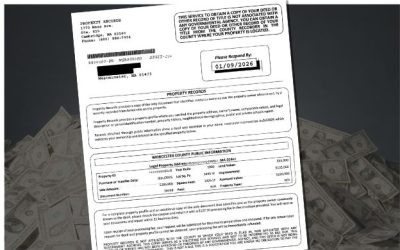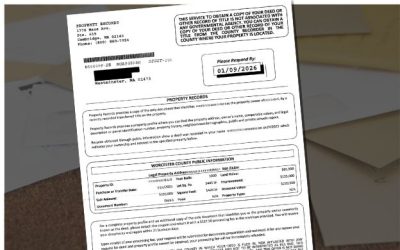
Jun 19, 2025 | Around The Home, Around The Hoome, Artificial intelligence, Buying Real Estate, Chapter 7 Bankruptcy, Consumer Tips, Credit Scoring, Fair Housing, Federal Reserve, FHFA, Financial Crisis, Financial Fraud, Financial Reports, Foreclosure, Happy Thanksgiving, Holidays, Home Building Tips, Home Buyer Tips, Home Buying Tips, Home Care, Home Care Tips, Home Closings, Home Decorating, Home Financing Tips, Home Maintenance, Home Mortgage, Home Mortgage Tips, Home Seller Tips, Home Selling Tips, Home Tips, Home Values, Homebuyer Tips, Homeowner Tips, Housing Analysis, Housing Market, Interesting Stuff, Investment Properties, Legislation, Market Outlook, Mortagage Tips, Mortgage, Mortgage Guidelines, Mortgage Lenders, Mortgage Rates, Mortgage Tips, mortgage-rates-whats-ahead-september-17-2012, News, Organization Tips, Personal Finance, Probate Law, Rankings, Real Estate, Real Estate Agent Information, Real Estate Definitions, Real Estate Tips, Real Estate Trends, Realtors, Selling Real Estate, Selling Your Home, Short Sales, Statistics, Success, Taxes, The Economy, Title Insurance
Whether you’re buying with cash, investing from abroad, transferring property to a family member, or just trying to close without a headache, you’ll want to know what can trigger federal scrutiny — and how to stay off the radar.
From flagged wire transfers and shell companies to gift-of-equity sales and land near military zones, this isn’t your average title-and-keys situation.
It’s real estate with a side of national security, tax enforcement, and financial crime prevention.
Is Big Brother Watching Your Home Sale?
What Buyers and Sellers Should Know About Federal Oversight
You’re Not Paranoid — They Might Actually Be Watching
What you didn’t know on how federal agencies keep tabs on select real estate transactions.
Your Closing Packet Could Be a Federal File
How Your Paper Trail Might Raise Red Flags — And What You Can Do About It
What the FBI, IRS, and Homeland Security
Could See in Your Closing Docs
We’re unpacking what agencies might spot inside your deal’s fine print.
Caught in the Crosshairs? What Triggers Federal Interest in Your Home Sale
The Top Red Flags That Could Invite a Closer Look from Washington
Cash, LLCs, or Land Near a Base? You Might Just Be a Target
The warning signs that put your deal on the government’s radar — and how to stay clear.
Follow the Money: How the IRS Tracks Financial Crimes Through Real Estate
From Unreported Income to Shell Game Schemes
— What IRS-CI Is Looking For
Your Closing Could Be an Audit Trigger — Here’s How the IRS Sees It
Explore the patterns, documents, and loopholes that turn ordinary deals into criminal cases.
Providing title, escrow, closing and settlement services to clients throughout Massachusetts and New Hampshire
“As a realtor, the Rocheford team went above and beyond to make sure my client was not only protected from a legal standpoint but also operated in a timely manner to execute the sale of my client’s dream home.
Thank you for the great experience for myself and my client! Looking forward to our next deal together!”
Realtor®
“I don’t usually use attorneys that often. But if an attorney is needed, I couldn’t recommend this law office enough. I always pride myself on responding quickly to emails and calls, but I was in awe of how fast paralegal Robert Heckman would respond to us. We sold our house a couple months ago and then did a two-part land swap with neighbors and my folks, and both transactions were seamless, including coming in to sign paperwork.
In short, if you need a law office that is responsive and attentive to detail, definitely consider them!”
Leominster, MA
“Excellent, conscientious and professional.
The communication throughout our Real Estate transaction was better than expected. We thought the fee to be very reasonable considering the work accomplished on our behalf. The law office handled the entire closing without us having to be in attendance….as we requested. I have had experience with very competent lawyers and law firms as the result of my previous profession. I would place this law office right up there among the best in their real estate field of expertise and surprisingly at very reasonable and affordable rates/fees.”
Buzzards Bay, MA

May 30, 2024 | Real Estate Definitions
As part of the federal Truth-in-Lending Act, refinancing homeowners are granted a 3-day “cooling off” period post-closing during which they retain the right to rescind, or “cancel”, their recent refinance without penalty or cost.
The Right To Cancel is protection against surprises at closing and/or a change of heart. It’s also a safety valve for homeowners signing paperwork under duress. With 3 days to revisit and rethink the terms of a loan, a homeowner can maintain tighter control of his/her financial situation.
If you ever have the wish (or need) to execute (more…)
Nov 13, 2017 | Real Estate Definitions, Real Estate Tips

By Attorney Nicholas Thalheimer
Generally, when declarations of trusts are recorded at the Registry of Deeds, the trust document will identify and name successor trustees. However, some trust documents do not name successor trustees. This becomes problematic when the original trustee(s) of the trust passes away and there is no successor trustee named or appointed either by the deceased trustee, while they are still living, or in the body of the trust document itself. In circumstances where a trust is unrecorded, the only evidence of the existence of the trust may be a recorded Certificate of Trust, which is acceptable. However, if the trustee is deceased and there is nothing of record signed by the original trustee(s) in the form of a certificate naming, or identifying, successor trustees effectively the trust has no trustee of record.
For example, when an unidentified successor trustee alleges that he or she is the successor trustee and attempts to convey, or take other actions related to, real estate owned by the trust, there is a question of whether he or she is truly the successor trustee. This is commonly referred to as the “Stranger to Title” issue, meaning that simply recording a self-serving trustee certificate executed by that successor trustee is not sufficient to evidence that he or she is, in fact, the successor trustee. This raises a question as to true ownership of the property and authority of the successor trustee to act.
In this example, without recorded evidence of a named successor, being appointed so by the current trustee of record, or by the beneficiaries of the trust (if the terms of the declaration of trust allows for this), there is no way of confirming legitimacy of the person claiming to be a successor trustee. Without clear evidence identifying a successor trustee, anyone could claim to be a trustee and attempt to convey the trust property.
Trust Attorneys who draft these documents commonly argue that identification of a successor trustee doesn’t need to be recorded. However, from a title insurance perspective, there must be a valid written instrument in the chain of title that evidence a successor trustee.
Another common problem we often encounter are trustee deeds for consideration of a dollar or some other nominal consideration. Property of a trust cannot be conveyed for nominal consideration. Title insurance companies view this as a possible breach of fiduciary duty. Often you have to look to the body of the trust to determine whether or not a trustee has the power to gift or whether or not they have the ability to make nominal gifts or convey for nominal consideration because they are, in fact, as trustees, fiduciaries for the beneficiaries.
Luckily, there are solutions to these issues. An affidavit of the attorney who drafted the trust can be recorded along with the applicable provisions of the trust to prove the identity of the trustee and their enumerated powers or authority. Oftentimes the alleged successor trustee does not have the original trust or a copy of it. However, if the attorney who drafted trust has a copy, that copy or select provisions of it, along with an affidavit stating the identity of a successor trustee can be recorded.
If there is a successor trustee, the trust, itself, should contain language about how to appoint a successor trustee. Usually, the process is left to the direction of the beneficiaries. But this can be an issue as well where there is no clear identification of the beneficiaries. Most trusts are drafted with a reference to a schedule of beneficiaries. However, that schedule of beneficiaries is not usually recorded. The same attorney that drafted the trust or the original trustees may, have the schedule of beneficiaries.
Under that set of circumstances, the issue can sometimes be resolved by recording a document supporting the alleged successor trustee’s assertion that he or she is, in fact, the successor trustee. It all depends on the language of the trust.
The bottom line is that, as conveyancing attorneys, we have to rely on what is recorded in the chain of title to determine who the record owner is and what powers they have, or may not have. In cases where the property is held in trust, we cannot rely on self-serving statements of alleged successor trustees. This is the case whether the trust is recorded or not. We must a see a clear nexus between the purported trustee and the trust. And if a conveyance is made by the trustee for nominal consideration their power to do so must be clearly stated in the recorded title. Few trusts contain provisions for gifting or transferring title for nominal consideration and it is usually limited to estate planning or inter-family transfers.
Nov 5, 2012 | Real Estate Definitions
 Homeowners associations (HOA) are legal corporations formed by a real estate developer to market, to manage, and to sell homes and lots in a residential subdivision.
Homeowners associations (HOA) are legal corporations formed by a real estate developer to market, to manage, and to sell homes and lots in a residential subdivision.
They’re most commonly formed for condominiums and planned urban developments (PUDs), a category which includes suburban communities.
HOA Articles of Incorporation typically grant developers privileged voting rights in governing the association during its infancy, while providing the means for the developer to exit financial and legal responsibility for the organization, transferring ownership to the homeowners of the association.
This transfer typically occurs after a predetermined number of units have been sold — often two-thirds of the available lots and/or units.
Each homeowners association enforces its own governing documents in the form of restrictive covenants, by-laws, architectural guidelines and regulations. Together, the “rules” of an HOA are meant to define the community standards for the purpose of protecting property values.
Restrictive covenants vary widely from homeowners association to homeowners association. Covenants may include guidelines on issues as varied as where parking is permissible; planned architectural improvements; and, landscaping.
HOAs in Worcester County area often enforce these common restrictive covenants, among others :
- Boats, utility trailers, RVs, and commercial vehicles may not be parked in driveways and streets
- Homes may not be painted in “loud” colors
- Yard signage may not be political in nature, nor defamatory
- Lawn care must be performed routinely to prevent overgrowth
- For condos with balconies, towels and clothing may not be draped on railing
For homes governed by an HOA, membership in the homeowners association is a condition of purchase; buyer are not permitted to opt-out.
Homeowners associations make their by-laws available upon request to existing, governed homeowners and will often make by-laws available to prospective home buyers as well. Review community guidelines before buying into a building or neighborhood, and before beginning a home improvement project. It’s important to know what actions are permissible and what actions are not.
In addition, most mortgage lenders require HOA by-laws as part of the mortgage approval process.
Jun 6, 2012 | Real Estate Definitions
 When you preview homes as a home buyer, you can get a good feel for the home’s visible traits — its finishes, its room counts, and its landscaping, for example. What you can’t get a feel for, though, is the home’s “bones”.
When you preview homes as a home buyer, you can get a good feel for the home’s visible traits — its finishes, its room counts, and its landscaping, for example. What you can’t get a feel for, though, is the home’s “bones”.
It’s for this reason that real estate professionals recommend that you have a property formally inspected immediately after going into contract for it.
A home inspection is a thorough, top-to-bottom check-up of a property’s structure and systems. It is not the same as a home appraisal, which is a valuation of the property. By contrast, (more…)
Dec 8, 2011 | Real Estate Definitions
 As a homeowner, your fiscal responsibility extends beyond just making mortgage payments. You must also pay your home’s real estate taxes as they come due, as well as your homeowners insurance policy premiums.
As a homeowner, your fiscal responsibility extends beyond just making mortgage payments. You must also pay your home’s real estate taxes as they come due, as well as your homeowners insurance policy premiums.
Failure to pay real estate taxes can result in foreclosure. Failure to insure your home is a breach of your mortgage loan terms.
There are two methods by which you can pay your real estate tax and homeowners insurance bills.
The first method is to pay your taxes and insurance as the bills come due, usually semi-annually. Depending on your home’s tax bill size and the cost to insure your home, these payments can feel quite large — especially if you’ve failed to budget for them properly.
The second method of paying your taxes and insurance is to give your lender the right to pay them on your behalf, a (more…)















 Homeowners associations (HOA) are legal corporations formed by a real estate developer to market, to manage, and to sell homes and lots in a residential subdivision.
Homeowners associations (HOA) are legal corporations formed by a real estate developer to market, to manage, and to sell homes and lots in a residential subdivision. When you preview homes as a home buyer, you can get a good feel for the home’s visible traits — its finishes, its room counts, and its landscaping, for example. What you can’t get a feel for, though, is the home’s “bones”.
When you preview homes as a home buyer, you can get a good feel for the home’s visible traits — its finishes, its room counts, and its landscaping, for example. What you can’t get a feel for, though, is the home’s “bones”. As a homeowner, your fiscal responsibility extends beyond just making mortgage payments. You must also pay your home’s real estate taxes as they come due, as well as your homeowners insurance policy premiums.
As a homeowner, your fiscal responsibility extends beyond just making mortgage payments. You must also pay your home’s real estate taxes as they come due, as well as your homeowners insurance policy premiums.